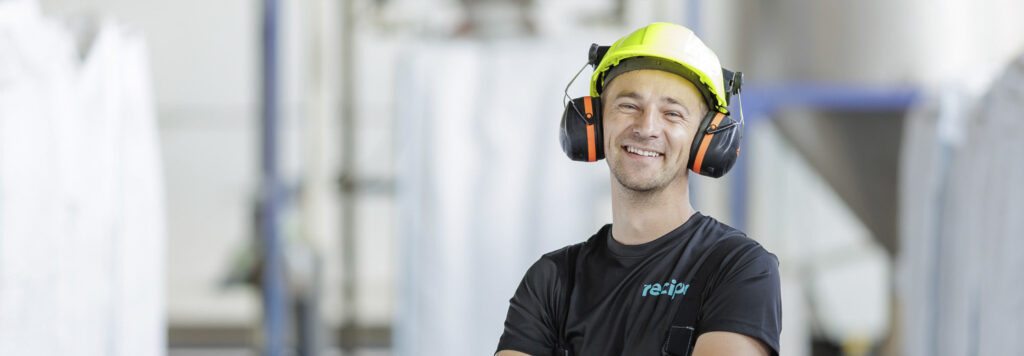Reuse & Recycling
Collected e-waste is either reused or recycled. By extending the lifespan of electronic products and recycling materials from end-of-life devices, we actively contribute to a circular economy that reduces environmental impact and saves valuable resources.

Reuse
Give Products a Second Chance
Reuse means that functional products are used again instead of being discarded. Before considering recycling a product, check if it can be repaired or donated. Many products can get a new life through simple repairs or by being donated to charities. By repairing and reusing electronics, the amount of waste is reduced, and natural resources are saved.
Recycling
Circular economy in practice
What cannot be reused is instead sent for recycling. Although Recipo primarily handles recycling, we do our best to extract what can be reused from the waste stream so that the products can be used again.
When e-waste that is to be recycled arrives at Recipo’s contracted pre-processors, the waste is first sorted, and hazardous components such as batteries and mercury-containing components are separated. The material is dismantled, shredded, and further sorted into various streams, such as iron, copper, plastic, and glass. This process ensures that as much material as possible can be recycled and reused in new products.
The Recycling Process
- Collection: Electronics and batteries are collected via recycling centers, stores, and other collection points. These collection points play an important role in ensuring that the waste is handled correctly.
- Transport: The collected waste is safely transported to certified recycling facilities. The transport is carried out under controlled conditions to minimize environmental impact.
- Sorting: At the recycling facility, the material is carefully sorted. Hazardous substances are handled separately to avoid environmental damage and to ensure they are managed safely.
- Recycling: Metals, plastics, glass, and other materials are recycled and processed into new raw materials. These recycled materials can then be used in the manufacturing of new products, reducing the need for new raw materials.
- Manufacturing: The recycled raw materials are used to manufacture new products, closing the loop and promoting a circular economy where materials are reused and recycled.
Frequently Asked Questions
Why is it important to recycle electronics and batteries?
Electronics and batteries contain hazardous substances that can harm the environment and human health if not handled correctly. By recycling these materials, we can also recycle valuable resources such as metals and reduce the need to extract new raw materials.
Can you reuse electronics instead of recycling them?
Yes, reuse is a good alternative to recycling. Electronics that still work can be resold, donated or repaired to extend their life. This reduces the amount of waste and saves resources.
Why is it important to recycle packaging?
Recycling packaging reduces the amount of waste that ends up in landfills and in nature. It also saves energy and resources because recycled materials can be used to make new products instead of using new raw materials.
What happens to the packaging after it has been recycled?
After the packages have been collected and sorted, they are transported to recycling facilities where they are processed and converted into raw materials. These raw materials are then used to manufacture new products, reducing the need for new resources.
Connect your Company with us
To connect your company with us, simply fill out our form tick off which country or countries you want to take your producer responsibility and for which categories. Upon completion, you’ll receive an email containing a connection agreement and all the necessary information to manage your producer responsibility seamlessly.
